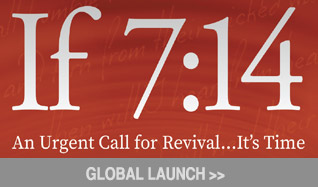The following opinion column from The FAMiLY Leader President and CEO Bob Vander Plaats was published by USAToday.com on Thursday, Feb. 18, 2021, following the death of radio broadcaster Rush Limbaugh.
There was a time when many Americans, and many political conservatives in particular, felt they had no voice in the national dialogue. Television’s major networks dominated the discussion from their headquarters in Washington and New York.
But when Rush Limbaugh came on the scene in 1988, he changed all that.
Limbaugh’s groundbreaking, syndicated radio program demonstrated — long before the advent of social media — that it was possible to raise an alternative voice to the mainstream news, a voice independent of TV conglomerates and gatekeepers. What’s more, Limbaugh’s soaring ratings proved there exists an audience hungry for thought, opinion and discussion that goes beyond the popular culture narrative.
Limbaugh was thus a pioneer, not just for talk radio, but for the First Amendment and the voice of the common man. Even though many disagree with Limbaugh’s politics, we all owe him a debt of gratitude for blowing the doors off a new channel of discussion and opening the dialogue to everyone.
Rush opened the talk radio floodgates
Many Christian talk programs in particular wouldn’t even exist today were it not for Limbaugh’s success. Christian radio would still be limited to sermons and songs. But instead, radio stations realized the benefit of capturing even a slice of Limbaugh’s audience share and offered new hosts and new voices opportunities to join a new, more democratic discussion of the issues.
Even Limbaugh’s critics and political opponents benefited from his pioneering popularity. Alternative, progressive talk hosts were also given new opportunities, even if only to rebut Limbaugh. And while talk radio remains primarily a medium for political conservatives, who can doubt that hosts like Stephen Colbert, Bill Maher, and Jon Stewart, among others, didn’t directly benefit from Limbaugh demonstrating the profitability of combining entertainment and political commentary for American audiences?
For that matter, do we think the more conservative voices — like Sean Hannity, Steve Deace, Glenn Beck or Ben Shapiro — would have reached such heights had Limbaugh not first blazed the trail?
In Iowa, where I live and where we host the first-in-the-nation presidential caucuses, we often pride ourselves on running candidates through the gauntlet of “retail politics” — meaning these candidates have to meet the people face-to-face, in their hometowns, answering their questions — if the candidates want that first win on the way to becoming president. It’s a critical piece of our political process that cannot and should not be replaced by big-show campaign rallies, polls, and political ads.
And in Iowa, as well as across the nation, Limbaugh’s show and the many talk shows that were inspired by it empowered those hometown voters to feel included. To feel like they have a voice, too. To be interested and informed. To ask tough questions. To not toe the line being fed to them by their TV.
Dialogue is happening because of him
Yes, it’s messy to bring political discussion to every commuter’s radio, to living rooms and dining room tables. In Iowa, we’re used to it because of the caucuses. But as a country, we are better off for it and for having more of it. It’s a safeguard on our democracy to have the people actively engaged in the discussion, even if they’re wrong some of the time.
Now I, like many Americans, didn’t always “ditto” Limbaugh’s politics. And as a Christian leader, I couldn’t always endorse his commentary. He too often violated the biblical directive to speak the truth in love. And civil dialogue was too often undermined by his harsh rhetoric.
But partly because of him, the dialogue is actually happening. Not even a national news media nearly lockstep in support of President A or opposed to President B can drown out the discussion. Even when television news anchors and newspaper editorial rooms speak from a tightly controlled, unilateral narrative (as several journalists have admitted lately is the case), radio hosts are boldly giving voice, not just to the opposition, but to their listeners. To those who call in. To the people.
So, no, I can’t necessarily offer Rush a “mega-ditto.” But I’ve watched how the people are involved, engaged, and willing to challenge the status quo today in part because of him. And for that, I do offer Rush a mega “thank you.”



